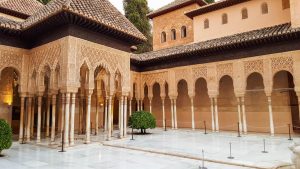End of the Season
by Carol Dunn
HUERFANO- Most of our gardens have had a couple snows and quite a few freezes, and it’s time to clean up and plan for next year.
Discard dead plant stalks or mulch them if the stems are not woody. Old leaves and stems and unharvested vegetables can harbor insects or diseases that will affect your crops next year. If any of your debris includes diseased plants, put these into the trash and have them hauled off your property.
Clean and put away your tools. Run your tiller and lawnmower until the fuel tanks are empty or pour out remaining fuel. Gas aged over winter will gunk up engine parts next spring.
Make a rough sketch of this year’s garden so you can rotate crops into different sections of the garden next year. This helps prevent damage next year from viruses and disease-causing organisms that attack plants in the same family. About 85% of disease-causing organisms reside in the soil and can survive there for many years. Many gardening texts recommend you avoid planting vegetables in the same family in the same place for up to four years.
Tomato family: Tomatoes, peppers, potatoes and eggplant.
Cucumber family: Cucumbers, canteloupes, squash, watermelons and pumpkins.
Cabbage family: Cabbage, broccoli, cauliflower, radishes, turnips, kohlrabi, and Chinese cabbage.
Onion family: Onions, leeks, garlic, shallots and chives.
Besides improving soil tilth by adding organic matter, tilling the soil in your garden will control certain diseases and insects by disturbing their winter home. However, Huerfano County winds are erosive and can strip away valuable topsoil and nutrients. Some gardeners like to plant a cover crop like rye to hold the soil over the winter. If you plant now, rake the seed into the soil and keep it moist until it sprouts. The Natural Resources Conservation Service office in Walsenburg suggests a seeding rate of about three pounds per thousand square feet, with the expectation that “about half of it will be eaten by the birds before it sprouts.” Rye, which is a winter crop, would then be turned under in the spring as “green manure.”
Penn and Cord Parmenter, high altitude farmers in Westcliffe, recommend not tilling the soil so the habitat of beneficial organisms will be protected. If you are trying to garden organically, these beneficial insects are key to your garden’s ecosystem. If you use chemicals on your garden, then tilling is less of an issue.
Hang in there gardeners. Seed catalogs are just a few months away.




